

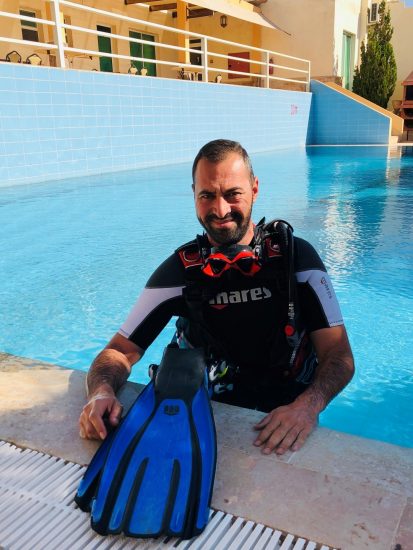
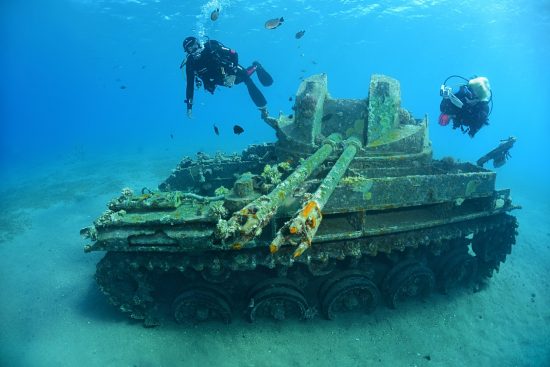
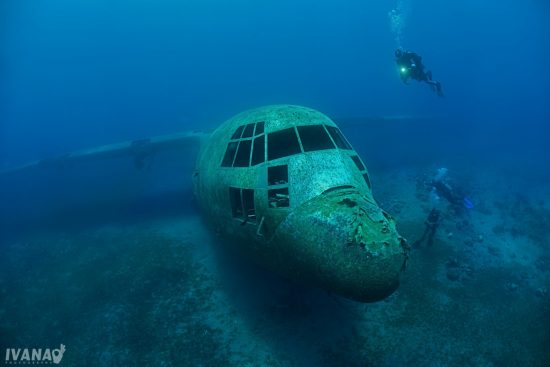
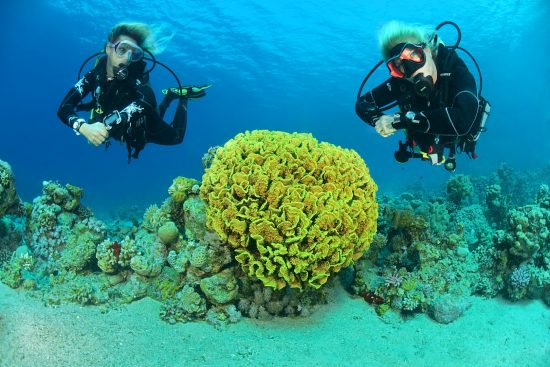
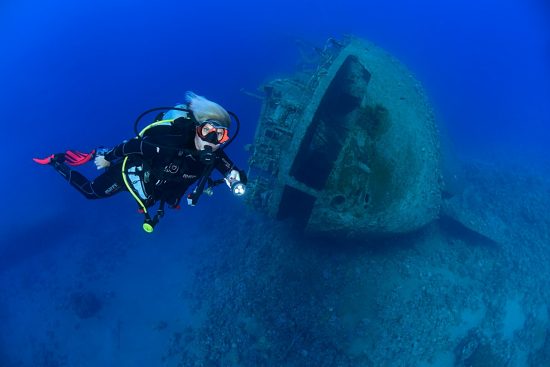
Abdullah Momany is the owner and manager of the Red Sea Dive Center. He is also a marine biologist who has worked in the marine environment for over 12 years. He started diving when he was only 9 years old and has made over ten thousand dives in the Gulf of Aqaba. He is the perfect interviewee for a story about Aqaba Bay.
Q: Jordan owns parts of the shoreline of Aqaba Bay. What are the special characteristics of the underwater world and the bay itself?
27km of the Gulf of Aqaba is Jordanian, and in these 27km there is a very high diversity of marine life, especially coral reefs and multi colored fish. There are over 200 different species of hard corals and more than 500 different species of fish.
Q: For some time now, ships, aircrafts, tanks and other objects have been intentionally sunk near the shore. Apart from being very popular among divers, they have also become home to many underwater creatures. What do you think about this kind of integration?
Wrecks are always interesting to divers and attract people from all over the word. Here we have the Cedar Pride shipwreck, a Lebanese cargo ship which was sunk deliberately by King Abdullah II 34 years ago as an artificial reef for divers, and we also have the new C130 Hercules plane wreck which was sunk one year ago. We also have a sunken tank which has been under the water for around 15 years.
These wrecks have become home to different marine species, and even though sinking objects is not 100% environmentally friendly for the sea, in a city like Aqaba where tourism is growing and more divers are visiting, it’s important to have things like this, because it reduces demand on the natural reefs. In Aqaba, we also make full impact assessments - we make sure we are following all the environmental procedures, choosing a location with a sandy bottom and only sinking clean, empty objects which are free from oil, paint, or anything that could affect the surrounding marine environment.
Q: How big is the impact of global warming in Aqaba Bay?
Since Aqaba is in the northern part of the Red Sea, thank God we are not effected by global warming and the water temperature is stable - between 22°C in winter to 28°C in summer - an excellent temperature for coral growth.
Q: Scuba diving in Jordan is expanding quickly. It is very good because it helps tourism development, but can it have a negative impact on the coral reef conditions and sea life in your waters?
Yes, it is increasing, and I believe it should be controlled and the number of divers and water activities should be determined to maintain and protect the unique marine life we have over here.
Q: Are there plans to sink any other objects in the future?
Yes, a 200+ passenger plane will be sunk at the north beach of Aqaba in the coming months to reduce demand on the natural reefs at the south beach. The north beach is mostly sandy, and the highest concentration of coral reefs are found at the south beach.
Interviewer: Janez Kranjc
Photos by Ivana O.K. & Janez Kranjc
 Ivana and Janez
Ivana and Janez 7th January 2019
7th January 2019

